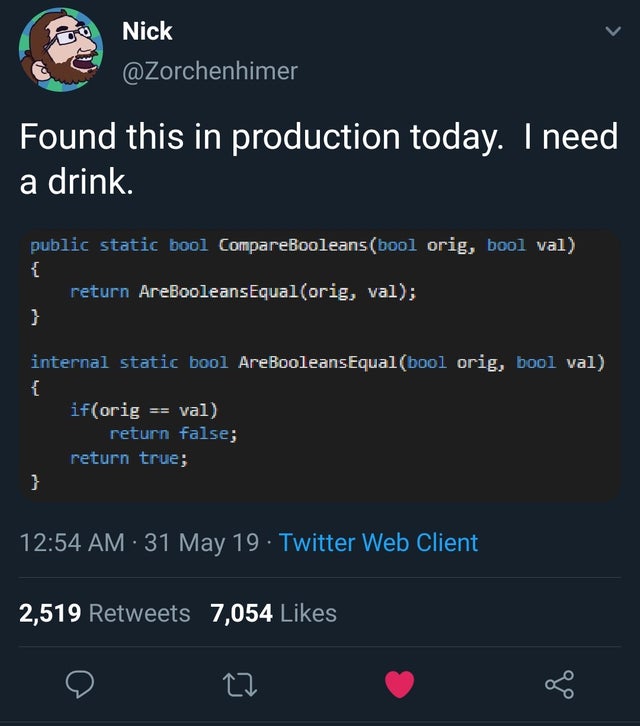Ranter
Join devRant
Do all the things like
++ or -- rants, post your own rants, comment on others' rants and build your customized dev avatar
Sign Up
Pipeless API

From the creators of devRant, Pipeless lets you power real-time personalized recommendations and activity feeds using a simple API
Learn More
Comments
-
Sharp is the opposite of flat, which is a lowering of pitch. There is an associated sharp symbol, ♯, which may be found in key signatures or as an accidental.
So basically you code C♯ -
@-xlf Why would you translate a name, though? You wouldn't translate Adam to Adolf.
-
 -xlf1198y@electrineer Actually, doesn't appear to be *that* uncommon:
-xlf1198y@electrineer Actually, doesn't appear to be *that* uncommon:
e.g.: I never hear anybody say
"age tea em el", instead, we say "ha te em el" (html)
or, with names: I don't think English people say "Louis quatorze", in German, we actually also translate the name, too, he's called "Ludwig der Vierzehnte" in history class here. I do admit that this isn't done for contemporary names, still non-pronounceable parts of the written names are still translated, such as "Elizabeth the second / die Zweite" -
@-xlf I'd pronounce single letters and numerals as in the language I'm speaking. So C would be "see", not "sii". But I consider C Sharp to be the name of the language, not the note C#.
Related Rants

 How do you even come up with shit like this?
How do you even come up with shit like this? I found such a treasure today in the production code.
I found such a treasure today in the production code.
I remember calling C#, C-Fis, because this was the only other name for this symbol than Hashtag and C Hashtag sounded wrong. But C Fis sounded wrong too and then I decided to just don’t say it’s name and if I have too say C Hashtag or Fis or whatever, which was definitely the worst option.
¯\_(ツ)_/¯
rant
c what?
c sharp or whatever
c hashtag
c#